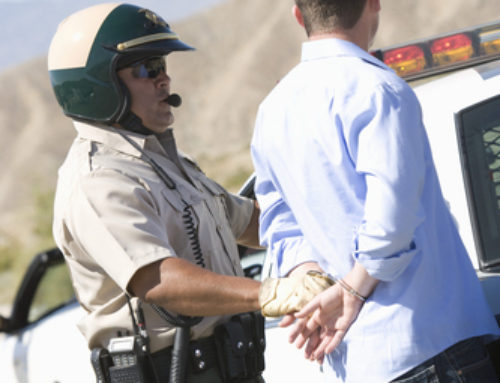 California parole and probation violations and the way they are dealt with in the CA criminal justice system are under recent changes. In 2011, California lawmakers implemented a prison realignment system which, among other things, allowed persons sentenced to state prison to serve their time in county jail. If a person is arrested for a felony in California whether it be in Los Angeles, Orange, Riverside or even the conservative San Bernardino County, they may be eligible to serve their prison time in county jail which many persons prefer given the location of county jail and the often dangerous proposition of having to serve time in a California state penitentiary. Issues may arise, when a person is released from their prison sentence from county jail as they are now often times placed under the supervision of a county probation officer as opposed to a parole officer. If a person violates parole under the supervision of a county probation officer, they may be subject to an immediate “flash” incarceration for up to 10 days which is being challenged in the California appellate case of People v. Ward since such incarceration may violate a person’s right to Due Process under the United States Constitution.
California parole and probation violations and the way they are dealt with in the CA criminal justice system are under recent changes. In 2011, California lawmakers implemented a prison realignment system which, among other things, allowed persons sentenced to state prison to serve their time in county jail. If a person is arrested for a felony in California whether it be in Los Angeles, Orange, Riverside or even the conservative San Bernardino County, they may be eligible to serve their prison time in county jail which many persons prefer given the location of county jail and the often dangerous proposition of having to serve time in a California state penitentiary. Issues may arise, when a person is released from their prison sentence from county jail as they are now often times placed under the supervision of a county probation officer as opposed to a parole officer. If a person violates parole under the supervision of a county probation officer, they may be subject to an immediate “flash” incarceration for up to 10 days which is being challenged in the California appellate case of People v. Ward since such incarceration may violate a person’s right to Due Process under the United States Constitution.
Rights of Parolees in California
Prior to 2011, a person on parole who is charged with violating parole would be subject to the standards under California Penal Code section 3044 which provides that a parolee shall be entitled to a probable cause hearing no later than 15 days following his or her arrest for violation of parole. A parole violation may include violating certain conditions of your parole such as reporting to a parole officer or violating parole by committing a new misdemeanor or felony. Typically, parole conditions will require a person released from custody to obey all laws. If a person is charged with a parole violation, they have a right to have an attorney present at the parole violation hearing and it is always advisable to retain and/or consult with an experienced criminal defense attorney to protect your rights at a parole revocation hearing. If a hearing officer finds that there is probably cause to violate a person’s parole, the parolee will then be entitled to a parole revocation evidentiary hearing within 45 days of a person’s arrest for a parole violation.
Any evidentiary hearing to determine whether someone violated parole is not exactly the same as a trial as there is no jury but rather a hearing officer and the burden of proof to prove a parole violation is by a “preponderance of the evidence” which is any easier standard to prove in relation to a “beyond a reasonable” doubt standard in a criminal jury trial. Evidence at a parole hearing may also include direct testimony from a witness or victim, documentary evidence and hearsay statements from the victim. It will be important for a parolee and his or her lawyer to be prepared to challenge any evidence submitted in furtherance of parole revocation including providing any relevant witnesses or documents which may challenge revocation.
In addition, even if a parolee is found to be in violation of parole, a competent attorney can seek lesser sanctions than a return to prison including but not limited to a return to parole with a modification of the conditions of parole.
Parolees Under Supervision of the County
Although the parole revocation rules apply to persons doing their state prison sentence in county jail, the new rules after 2011 including a 10 day immediate “flash” incarceration appear to be applied in the majority of cases to persons under the supervision of a county probation officer after being released from county jail. California Penal Code section 1203.2 provides that if a probation or parole officer has “probable cause” to believe that the supervised person is violating any term or condition of his or her supervision, the officer may, without a warrant or other process, . . . . rearrest the supervised person and bring him or her before the court. However, section 1203.2 of the California penal code gives a probation/parole officer the authority to assess intermediate sanctions prior to a court hearing including a 10 day “flash”incarceration. Such immediate incarceration where no new criminal offense has been committed appears to violate a person’s Constitutional right to Due Process as argued the California case of People v. Ward.
While traditional parolees released from an actual California State Prison are guaranteed the right two hearings with an attorney present to defend their rights, a parolee under county community supervision after a release from county jail appear not to have the same rights as they can be committed to incarceration for 10 days without a hearing.
The need for retention of a quality Los Angeles and California Criminal Defense Attorney When Facing Parole and Probation Issues:
Clearly, the best way to avoid a parole revocation issue is to avoid a state prison sentence whether you are allowed to do your time in county jail as opposed to state prison. As such, when arrested for a felony in California where you are exposed to serving time in state prison, one should immediately consult with and/or retain an experienced California criminal defense lawyer who can advise a person as to the best way to defend against felony criminal charges.


